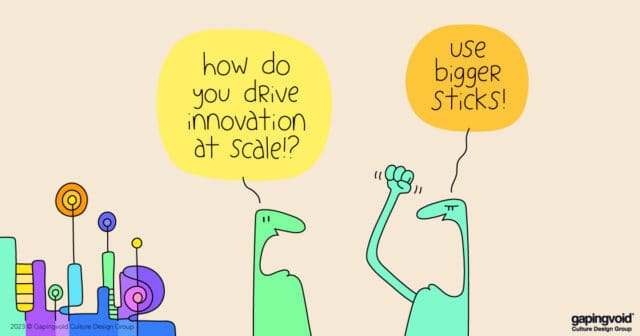Hugh’s Law: “All online social networks eventually turn into a swampy mush of spam.”
Which explains why early adopters are always fleeing online social networks [e.g. LinkedIn], only to join a new one [e.g. Facebook]. They’re fleeing the spam.
[For a far more learned and authoritative thought on the subject than my own, go read Clay Shirky.]
 The Gapingvoid Email - free insights & inspiration three times a week!
The Gapingvoid Email - free insights & inspiration three times a week!
wpDiscuz


